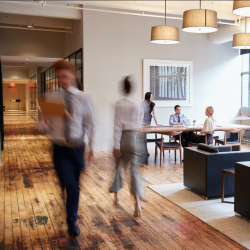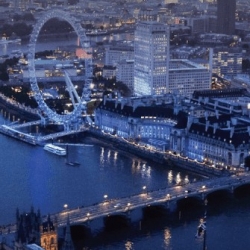March 15, 2023
Office market continues to fail on environmental standards …. say landlords
 A new survey that explores the state of sustainability within the UK office market, jointly commissioned by infinitSpace and The Instant Group, claims that the office market is falling behind on environmental policies. The poll of 250 landlords suggests that almost half (47 percent) of landlords believe the office market is lagging behind other areas of the property sector in implementing/adopting environmental policies. The same number say they can’t ‘go it alone’ with 47 percent of landlords agreeing they need help in shaping environmental policies. At the same time, 84 percent of landlords report a vacancy rate of 30 percent and above as average among their office building portfolio. More →
A new survey that explores the state of sustainability within the UK office market, jointly commissioned by infinitSpace and The Instant Group, claims that the office market is falling behind on environmental policies. The poll of 250 landlords suggests that almost half (47 percent) of landlords believe the office market is lagging behind other areas of the property sector in implementing/adopting environmental policies. The same number say they can’t ‘go it alone’ with 47 percent of landlords agreeing they need help in shaping environmental policies. At the same time, 84 percent of landlords report a vacancy rate of 30 percent and above as average among their office building portfolio. More →





















 The
The 
 According to new research, the majority (58 percent) of built environment professionals believe the sector is already doing enough to tackle its carbon impact, despite the built environment contributing 36 percent of total global energy-related CO2 emissions, and the most recent available data highlighting that CO2 from operational energy use of buildings reached its highest level yet in 2019.
According to new research, the majority (58 percent) of built environment professionals believe the sector is already doing enough to tackle its carbon impact, despite the built environment contributing 36 percent of total global energy-related CO2 emissions, and the most recent available data highlighting that CO2 from operational energy use of buildings reached its highest level yet in 2019. 
 Ahead of COP26, green business leaders around the world have called for government and industry action on buildings and infrastructure. The World Green Building Council (WorldGBC) has published a new report, which it claims helps to identify opportunities for how a transformative, integrated approach to urban environments and buildings is essential to deliver change in line with the commitments of the Paris Agreement.
Ahead of COP26, green business leaders around the world have called for government and industry action on buildings and infrastructure. The World Green Building Council (WorldGBC) has published a new report, which it claims helps to identify opportunities for how a transformative, integrated approach to urban environments and buildings is essential to deliver change in line with the commitments of the Paris Agreement. 







